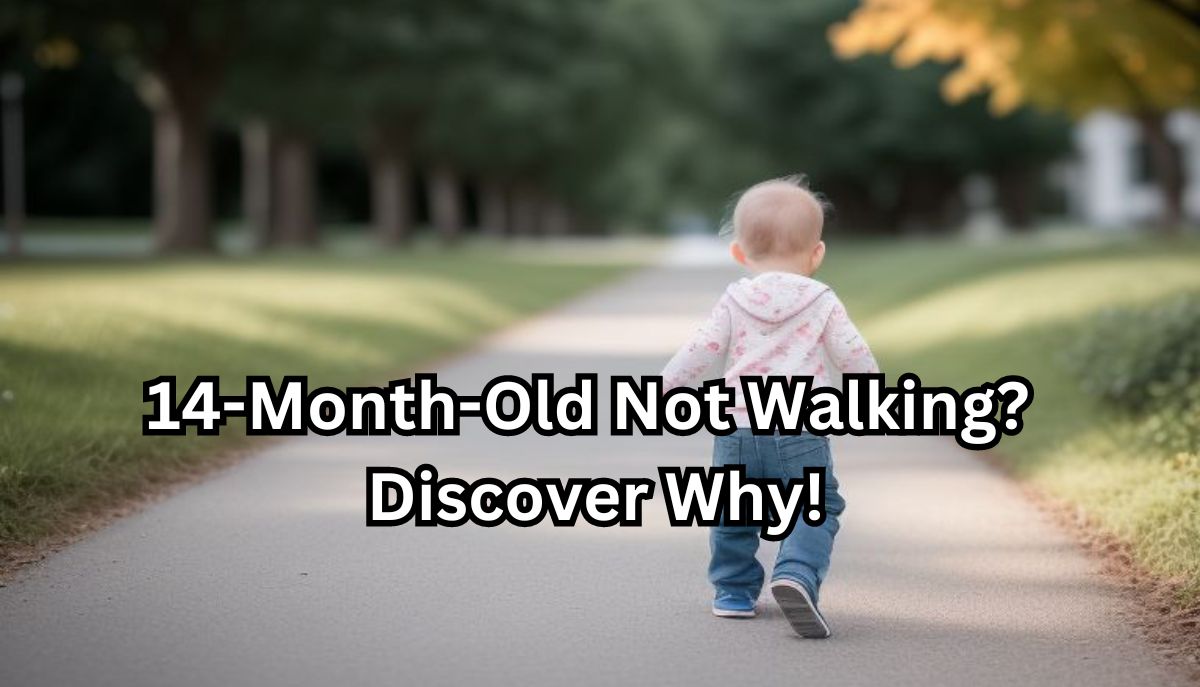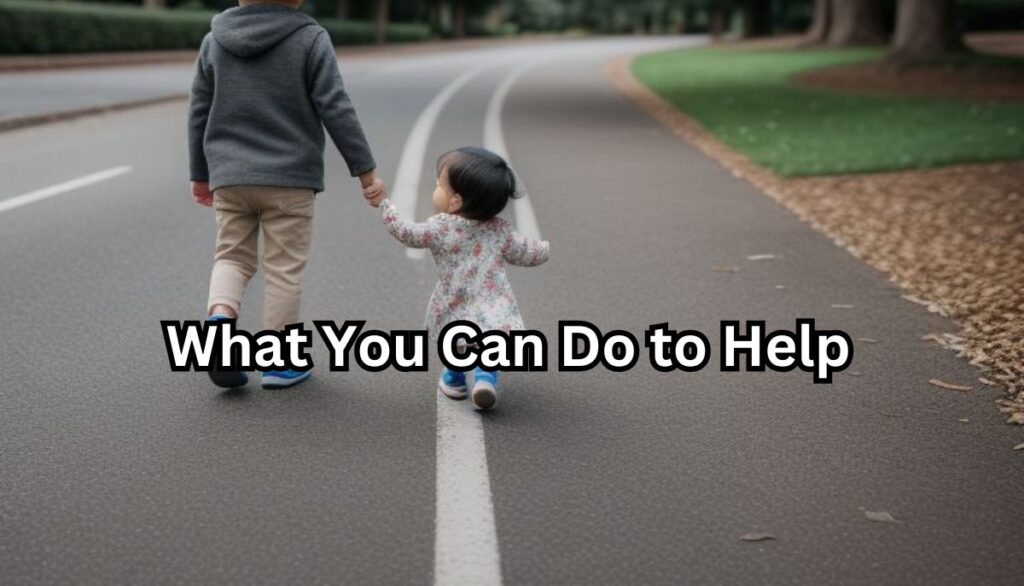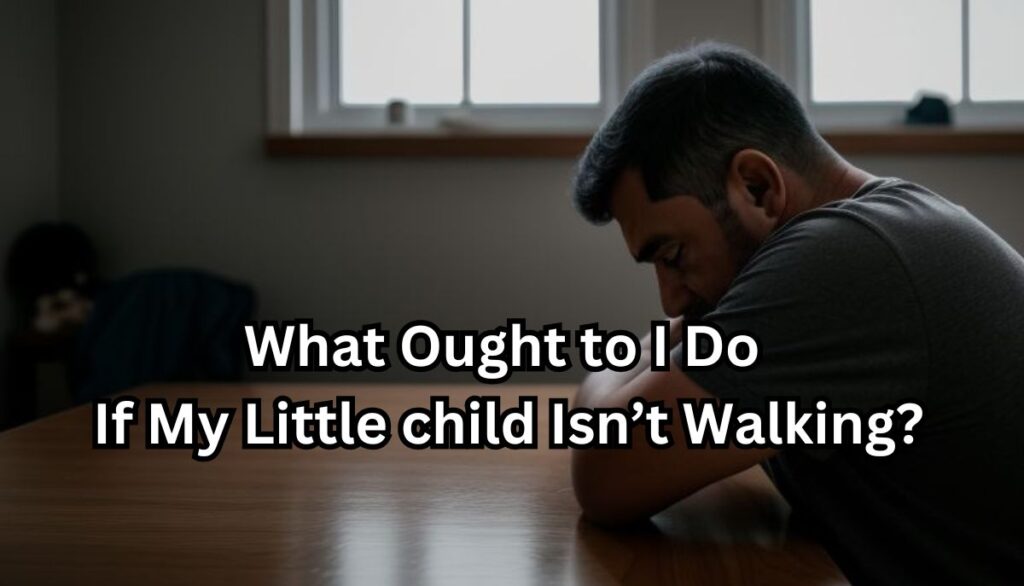14-Month-Old Not Walking? Discover Why!

Late walking of kids is the bigger problem parents need to face and they start to worry about it. Relax! It is natural to experience some concern.
This is common for many parents, and there are multiple reasons why a child might not have begun walking. Perhaps you are thinking if something’s amiss or if you’re doing something improperly.
Don’t worry, you’re not alone. Lots of parents go through this phase, and there are plenty of reasons why your child might not be walking yet. Let’s discuss what might be happening and what you can do to help.

Why Some Toddlers Take Their Time?
First off, let’s talk about the causes why some kids need time to start walking. Since each kid is unique to the other, and they all reach milestones at various rates.
Walking is similar to how some children start talking early while others take little time. Here are several common factors contributing to delayed walking in toddlers:
1. Personality and Temperament
Some kids are just more careful. They might like to sit, watch, observe & play rather than try new things. If your toddler is more laid-back or cautious, they might take their time to start walking.
2. Muscle Strength and Coordination
Walking takes a lot of strength and balance. Some kids might need extra time to build up the strength and coordination between their muscles.
If your child is a late crawler or if he doesn’t spend much time on their tummy (tummy time is super important!), they might need more time to develop those walking muscles.
3. Interest in Other Skills
Your toddler could be more interested in other different activities right now like stacking blocks, talking, or exploring how toys work. Maybe they’re super into stacking blocks, talking, or figuring out how toys work. Maybe they were focusing on various skills for now.
4. Health and Developmental Factors
Sometimes, your child suffers from various health or developmental reasons. If your child was born prematurely, had a long hospital stay, or has certain medical conditions, they might reach milestones a bit later.

What You Can Do to Help?
Now let’s explore some simple and enjoyable tips to inspire your little one to start walking.
1. Tummy Time
Make sure your toddler gets plenty of tummy time. This helps build the muscles they need for walking. You can do tummy time with toys, or you can get down on the floor and play with them.
2. Encourage Standing
Help your toddler practice standing. You can do this by holding their hands and letting them balance on their feet. You can also set up toys or furniture for them to pull up on.
3. Cruising
Set up a little obstacle course with furniture or toys that your toddler can hold onto and walk around. This helps them practice moving around while holding on to something for support.
4. Barefoot Time
Let your toddler go barefoot as much as possible. This helps them feel the ground better and improves their balance and coordination.
5. Play and Be Patient
Most importantly, make it fun and be patient. Celebrate the small steps and progress they make. Each small step counts and your bolster implies a lot.

What Ought to I Do If My Little child Isn’t Walking?
Okay, so what if you’ve tried all the tips and your toddler still isn’t walking? Here are a few following steps you can take.
- When Your Toddler Isn’t Walking by 14 Months
At 14 months, if your toddler isn’t walking yet, it’s usually okay to keep an eye on things for a little longer. A few kids fair require a bit more time. Keep encouraging them with the tips above and give them plenty of opportunities to practice.
- When Your Toddler Isn’t Walking by 18 Months
If your toddler isn’t walking by 18 months, it’s a good idea to talk to your pediatrician. They might suggest a developmental screening to check if there’s anything else going on. It’s always better to catch things early if there is an issue.

What Happens at a Developmental Screening?
If you decide to go for a developmental screening, you might be wondering what happens there. Here’s a quick rundown:
- Checkup: The doctor will look at your toddler’s overall health.
- Questions: You’ll answer some questions about your child’s development and daily activities.
- Observation: The doctor will watch how your child moves, plays, and interacts.
- Tests: Sometimes, they might do simple tests to check your child’s motor skills and reflexes.
These screenings help doctors figure out if your child is just taking their time or if they need a bit of extra help.
Wrapping It Up
So, there you have it! Your 14-month-old not walking yet isn’t the end of the world. Every kiddo is unique, and they’ll get there in their own time. With a little encouragement and some fun activities, you’ll likely see progress soon. Keep an eye on their development, but try not to stress too much. You’ve got this!
If you have more questions or concerns, don’t hesitate to reach out to your pediatrician. They can provide personalized advice and support to help your little one take those first steps.
Remember, you’re doing an amazing job, and your little one is lucky to have you cheering them on. Happy parenting!
FAQ’s
Is it normal for my 14-month-old to not be walking yet?
Yes, it’s normal. Every child develops at their own pace. Some toddlers start walking as early as 9 months, while others may not start until 15 or 16 months.
If your toddler is not walking by 18 months, you might want to talk to your pediatrician.
What are some reasons my toddler might not be walking yet?
There are several reasons why a toddler might take longer to start walking. These include having a cautious personality, needing more muscle strength and coordination, focusing on other skills, being born prematurely, or having certain medical conditions.
How can I help my toddler start walking?
You can encourage your toddler to start walking by giving them plenty of tummy time, helping them practice standing, setting up cruising activities, letting them go barefoot to improve balance, and being patient and supportive.
What happens during a developmental screening?
During a developmental screening, the doctor will check your toddler’s overall health, ask questions about their development and daily activities, observe how your child moves and interacts, and possibly conduct simple tests to check motor skills and reflexes.
Can wearing shoes help my toddler walk sooner?
While it’s important for toddlers to wear shoes when they’re outside to protect their feet, barefoot time is actually better for developing balance and coordination when learning to walk. Let your toddler go barefoot indoors as much as possible.
How much tummy time does my toddler need?
Even though your child is older now, tummy time is still important. Aim for at least 15-30 minutes of tummy time throughout the day to help strengthen their muscles.
Are there specific toys that can help my toddler learn to walk?
Yes, push toys, activity walkers, and stable furniture that they can pull up on and cruise around are great. These toys help them practice balance and coordination while moving around.
Should I use a baby walker to help my toddler walk?
It’s generally recommended to avoid baby walkers. They can be unsafe and don’t help with muscle development or coordination. Instead, encourage your toddler with safe, supervised play on the floor and cruising activities.

